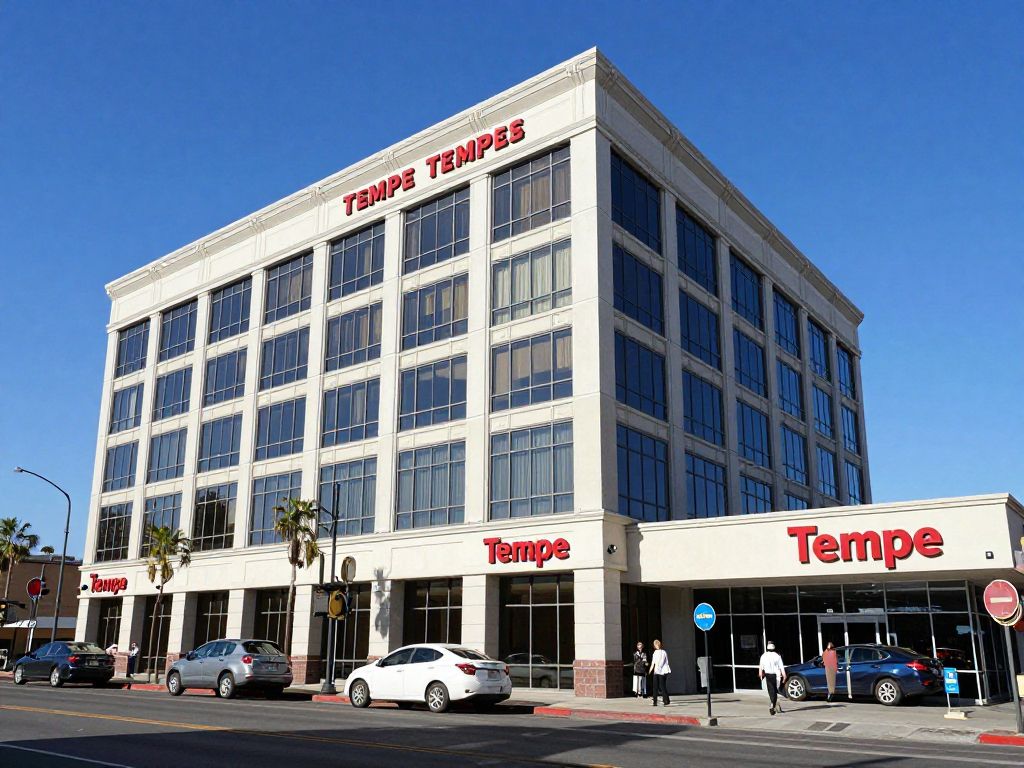News Summary
Arizona Governor Katie Hobbs has urged the state’s congressional delegation to reject President Trump’s proposed bill due to concerns over significant healthcare cuts that could affect vulnerable populations. During a recent press briefing, Hobbs criticized the legislation for potentially slashing Medicaid and nutritional assistance while favoring tax cuts for the wealthy. The bill has met opposition from both sides of the aisle, with repercussions that could severely impact over two million Arizonans reliant on Medicaid and food assistance programs. Hobbs emphasized the damaging consequences for families and rural healthcare providers across the state.
Arizona – Arizona Governor Katie Hobbs is urging the state’s congressional delegation to reject President Donald Trump’s proposed “big, beautiful bill,” raising significant concerns over potential healthcare cuts and the impact on vulnerable populations. During a press briefing on April 9, 2024, following a ruling by the Arizona Supreme Court that upholds a near-total abortion ban dating back to 1864, Hobbs expressed strong opposition to the legislation and has since put forward a letter detailing her position.
Hobbs described the proposed bill as unacceptable if it includes cuts to healthcare services, nutrition assistance for families, and rural hospital funding, all to finance tax reductions for the wealthy. The bill, which initially passed the U.S. House of Representatives with most Arizona GOP representatives in favor, has sparked critical responses from various political factions. An amended version of the bill has since been passed by the Senate, increasing cuts to Medicaid, and is now poised for another House vote.
President Trump is pushing for a House vote by the July 4 deadline as part of his administration’s legislative agenda. However, concerns over the bill’s provisions are being raised by both Republicans and Democrats. Notably, three out of four Arizona GOP Congressmen have expressed dissatisfaction, including Andy Biggs, who emphasized the potential impact on the federal deficit. The vote has faced delays as some Republicans who previously supported the bill have withdrawn their backing.
Governor Hobbs highlighted warnings from major healthcare and social service agencies in Arizona regarding the severe consequences that could arise if the bill is enacted. According to her, thousands of Arizonans would lose crucial access to healthcare services, food aid would be slashed, and many families would experience increased food insecurity and overall hardship. The proposed legislation includes extensive cuts to the Medicaid program, which serves low-income individuals and people with disabilities, while also shifting significant costs of the Supplemental Nutrition Assistance Program (SNAP) to the states.
The Congressional Budget Office has estimated that the bill would add approximately $3.4 trillion to the federal deficit over the next decade. Key provisions mandating work requirements for certain Medicaid and SNAP beneficiaries are projected to hinder access to these essential programs, potentially impacting over 220,000 Arizonans, most of whom suffer from disabilities or chronic illnesses. Additionally, the state’s Medicaid program, known as the Arizona Health Care Cost Containment System (AHCCCS), anticipates an initial cost of $80 million and an annual burden of $87 million due to the proposed budget changes.
Currently, nearly 2.2 million residents, accounting for about 28% of Arizona’s population, rely on Medicaid for medical care. The implications of the bill extend to the state’s rural healthcare providers as well, risking hospital closures and limiting essential healthcare service access across these communities. Concerns surrounding the bill have been further heightened during state budget discussions, where the transfer of substantial financial burdens from the federal government to the states has raised alarms.
State agencies, including the Department of Economic Security responsible for administering SNAP, have raised red flags about the anticipated cuts exceeding their capacity to cope. Governor Hobbs asserted that Arizona is not in a position to absorb the financial fallout from federal decisions without imposing drastic impacts on food and healthcare accessibility for those in need.
Additionally, Arizona Senators Mark Kelly and Ruben Gallego have voiced their opposition to the bill in the Senate, advocating for amendments that would safeguard working families’ access to both healthcare and food assistance programs. Business leaders within the state have criticized the legislation for the potential elimination of clean energy tax credits, which are essential for job creation and investment within Arizona’s clean energy sector.
Hobbs characterized the passing of the bill without necessary amendments as a reckless gamble that could devastate vulnerable communities, exacerbate the deficit, and impose considerable costs on Arizona taxpayers. As discussions continue, the stakes remain high with the potential for significant and far-reaching repercussions affecting Arizonans from all walks of life.
Deeper Dive: News & Info About This Topic
- Arizona Mirror
- Wikipedia: Abortion in the United States
- Tucson Sentinel
- Google Search: Arizona abortion laws
- AZ Family
- Google Scholar: Arizona abortion laws
- AP News
- Encyclopedia Britannica: Abortion
- Axios
- Google News: Arizona healthcare cuts
- AZ Central

Author: STAFF HERE PHOENIX WRITER
The PHOENIX STAFF WRITER represents the experienced team at HEREPhoenix.com, your go-to source for actionable local news and information in Phoenix, Maricopa County, and beyond. Specializing in "news you can use," we cover essential topics like product reviews for personal and business needs, local business directories, politics, real estate trends, neighborhood insights, and state news affecting the area—with deep expertise drawn from years of dedicated reporting and strong community input, including local press releases and business updates. We deliver top reporting on high-value events such as the Waste Management Phoenix Open, Cactus League Spring Training, and Arizona State Fair. Our coverage extends to key organizations like the Greater Phoenix Chamber of Commerce and Visit Phoenix, plus leading businesses in technology and healthcare that power the local economy such as Intel and Banner Health. As part of the broader HERE network, including HERETucson.com, we provide comprehensive, credible insights into Arizona's dynamic landscape.





